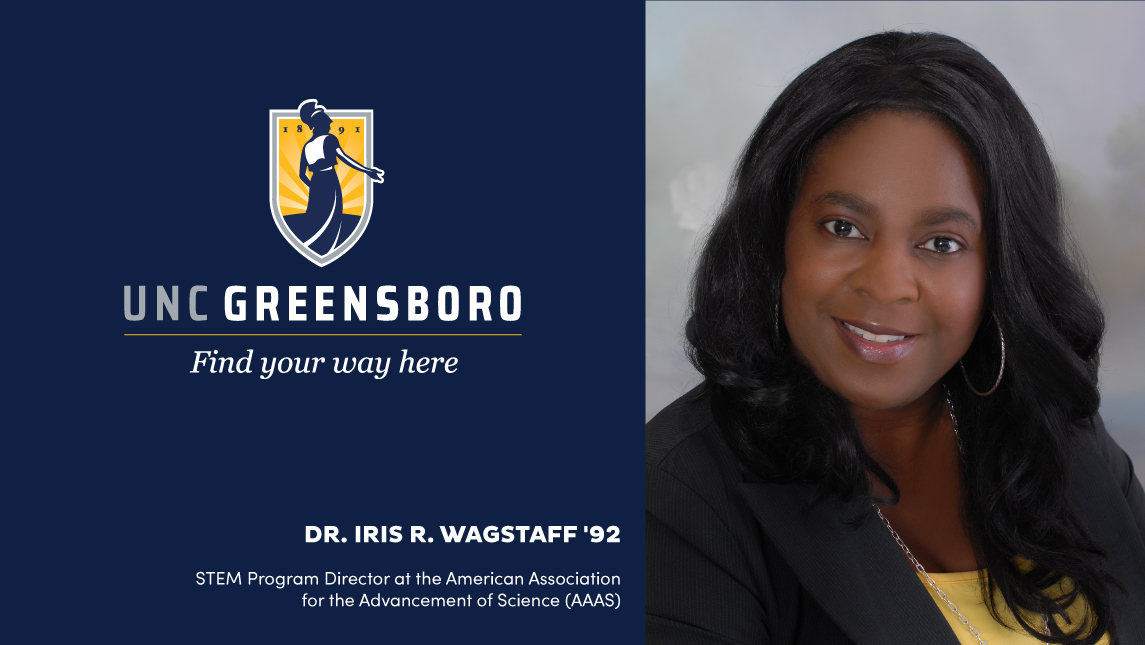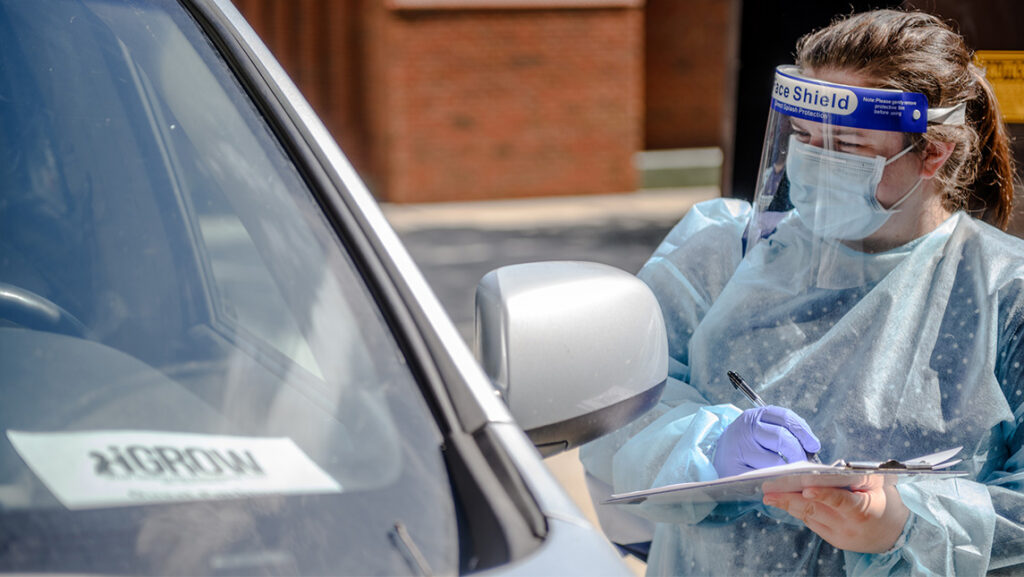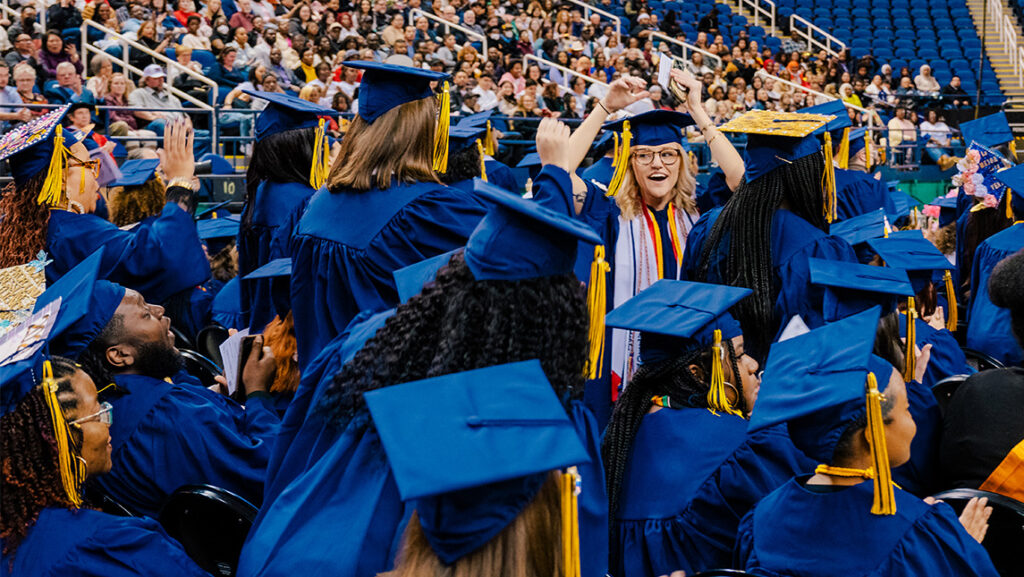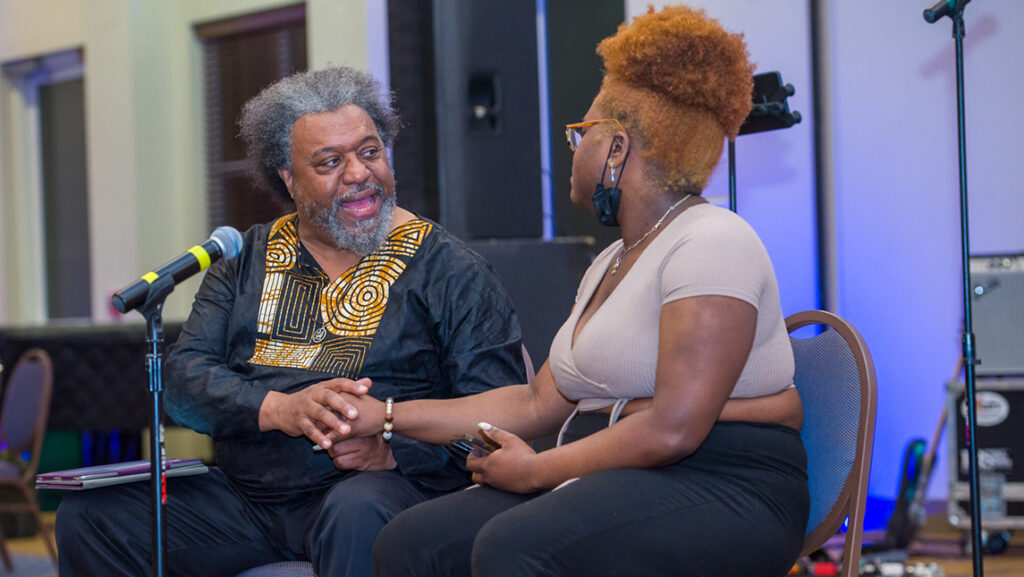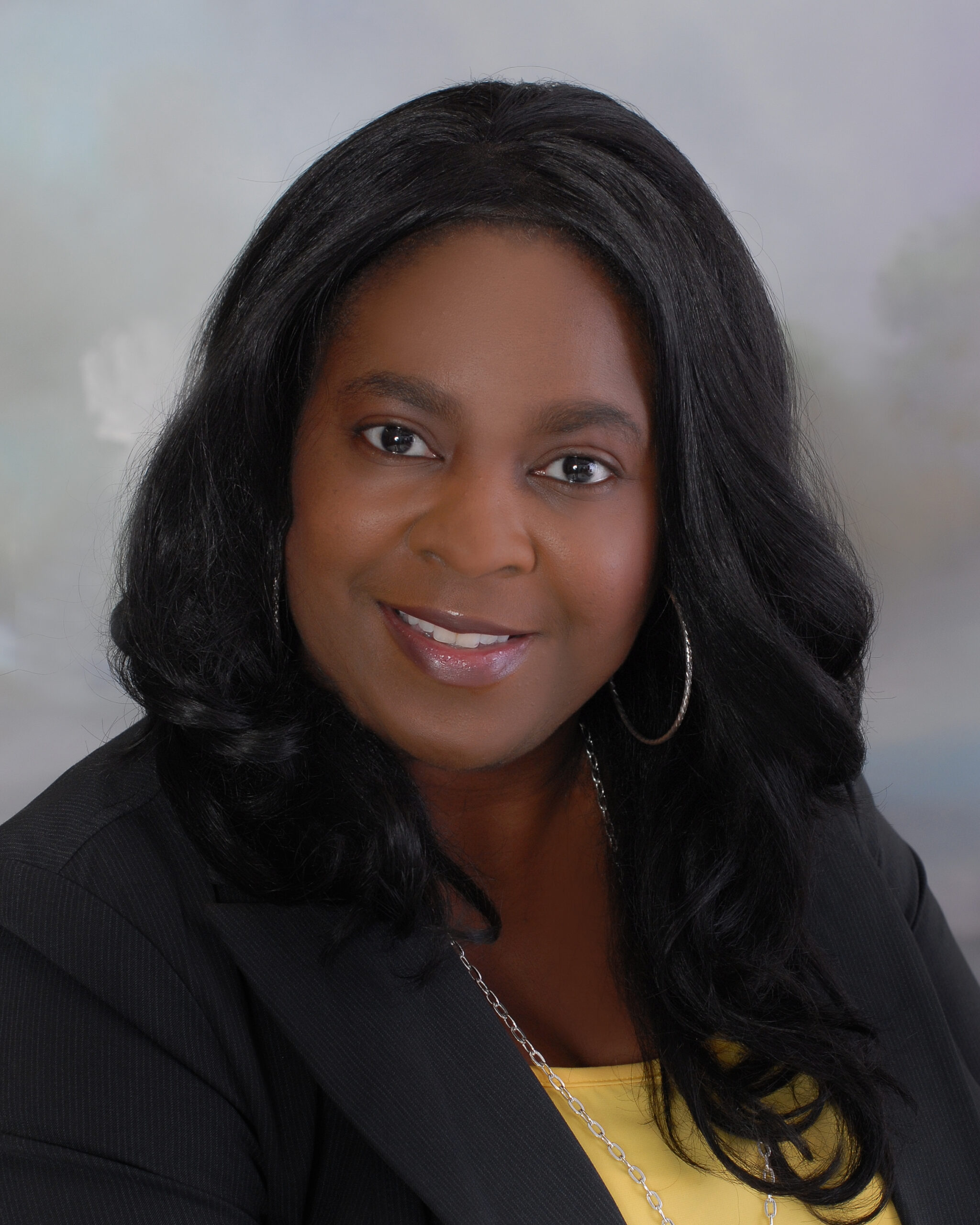
Meet Dr. Iris R. Wagstaff: a chemist, educator, mentor, researcher, and champion for diversity, equity, and inclusion in STEM.
A native of Goldsboro, North Carolina, Wagstaff has over 20 years of experience in STEM outreach and advocacy developing strategic partnerships between industry, academia, and community organizations in North Carolina and beyond.
“This work is just as important as it is personal to me. I am a Black female from a small town who was raised by a divorced single parent. Growing up, I was determined to change the trajectory for myself and my family. Science was a way to do that.”
Her career started at UNC Greensboro, where she received her BS in chemistry in 1992, and she was the only Black graduate from the chemistry department that year.
She credits her outstanding professors and the well-rounded education she received at UNCG for laying the foundation for her to be successful in her career.
After obtaining her master’s degree from N.C. A&T State University, she worked for Rohm and Haas Company (now Dow Chemical) as a research chemist for 15 years leading analytical project teams to solve customer problems and company-wide diversity initiatives.
In 2007, Wagstaff’s mother fell ill, and she left her successful career to go back to NC to care for her. When her mother passed away in 2008, it prompted her to transition to STEM education, which had been her passion and volunteer work for many years.
“My mom was the guiding force behind my education and career. Growing up, she never knew a Black scientist, but she created one. I want to help other young people, particularly those who have been historically disenfranchised and discouraged from scientific pursuits, to reach their full potential.”
Inspired by her mother, Wagstaff received her PhD in science education research and policy from NC State in 2014 and went on to develop resources for parents and teachers to help them teach science to K-12 students from a culturally relevant perspective.
In 2015, Wagstaff was selected as a Science and Technology Policy Fellow for the American Association for the Advancement of Science (AAAS), a prestigious fellowship that brings together STEM professionals from all over the world to Washington, D.C., to learn about policymaking and to contribute their knowledge and analytical skills in the policy realm. Wagstaff served at the DOJ National Institute of Justice Office of Investigative and Forensic Sciences where she developed and led an agency-wide diversity and inclusion initiative.
Wagstaff currently serves as a STEM Program Director in the ISEED (Inclusive STEM Ecosystems for Equity & Diversity) Department of AAAS where she manages a $20 million dollar portfolio focused on broadening participation, research workforce development, and inclusive innovation at the undergraduate, graduate, and postdoctoral levels. In this role, she also manages several NSF-funded grants that support researchers and innovators from diverse backgrounds.
In addition to her work at AAAS, she serves on the advisory boards of several organizations that include the National Organization of Black Chemists and Chemical Engineers (NOBCChE), the Department of Defense STEM Education Consortium, and the American Chemical Society Diversity, Equity, Inclusion and Respect. She has received several honors, including the Black Engineer of the Year Science Trailblazer Award and the Women of Color in STEM Education Award.
Most recently, she has founded her own education and diversity consulting company, Wagstaff STEM Solutions.
And she’s taken her work back to where it all started – at UNCG as an adjunct faculty member in the chemistry department, where she leads DEI efforts in the chemical sciences.
She hopes to continue to mentor and encourage students in STEM, and to increase diversity, equity, and inclusion in that field.
“As an Black female, I’ve overcome challenges and barriers at the educational and professional level. Being a chemist and also a social scientist, I have the tools to study people like me and build a sense of community and belonging in science. We have some really critical and challenging problems that affect us nationally and globally, so we need to engage all of our human capital because if we don’t, we could easily be excluding the very people who have the answers to the problems we’re trying to solve.”
Story by Alexandra McQueen, University Communications
Photography courtesy of Dr. Iris R. Wagstaff
